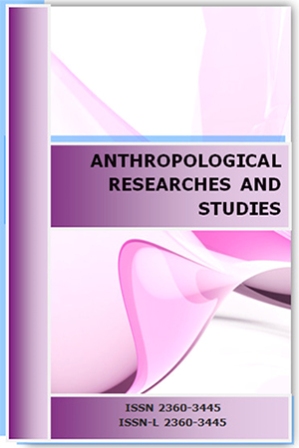The Importance of Well-Being and Satisfaction With Life in Reading- Comprehension and Mathematical Abilities in Deaf and Hearing Individuals
The Importance of Well-Being and Satisfaction With Life in Reading- Comprehension and Mathematical Abilities in Deaf and Hearing Individuals
Author(s): Yahir Gonzalez, Diego-Oswaldo Camacho-VegaSubject(s): Social Sciences, Psychology, Sociology, Social psychology and group interaction, Clinical psychology, Social differentiation, Health and medicine and law, Family and social welfare
Published by: Institutul de Antropologie ,,Francisc I. Rainer” al Academiei Române
Keywords: Deaf;reading-comprehension;mathematics;psychological well-being;subjective well-being;
Summary/Abstract: Objectives. The primary objective of this study is to evaluate if there are significant differences in reading-comprehension and mathematics between deaf and hearing individuals, identify if the level of Psychological Well-Being and Subjective Well-Being is related to higher mastery in reading- comprehension and mathematics, and finally, determine if self-perceived disadvantages in reading and mathematics by deaf individuals are related with their mastery in reading and mathematics tasks. Material and methods. A mixed-method was conducted including correlational and topological analysis of speech. The sample was constituted by 58 volunteers: five deaf individuals (age M =28.4) and 53 hearings (age M =18.75). Participants responded to the Satisfaction with Life Scale and the Ryf ́s Scales of Psychological Well-Being after solving the Adults Reading Evaluation and the Buenos Aires Mathematics test. Results. Higher scores were found for the hearing group in reading and mathematics. No correlations were found between Satisfaction with Life and reading and mathematics neither between Psychological Well-Being and reading and mathematics for both groups. The qualitative analysis indicated that deaf individuals perceived no differences in their reading-comprehension and mathematics skills regarding hearings, but they scored significantly lower than hearings. Conclusions. This study corroborated results from previous research about the differences in reading- comprehension and mathematical abilities between deaf and hearing individuals. This study identifies that differences between deaf and hearings might be more related to other factors such as the lack of awareness of difficulties in reading-comprehension and mathematics, while satisfaction with life and psychological well-being appears to be related to employment difficulties.
Journal: Anthropological Researches and Studies
- Issue Year: 2021
- Issue No: 11
- Page Range: 117-129
- Page Count: 12
- Language: English

